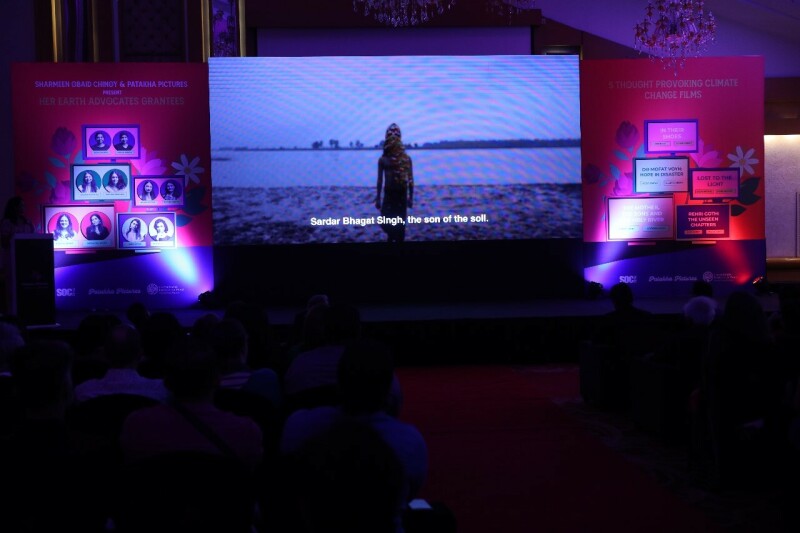Do Pakistani TV dramas depict working women as selfish, unfavourable characters?
While daytime television is infamous for its easily digestible stereotypes and predictable plotlines revolving around the usual gheralu masley masail, primetime on Pakistani television has managed to provide its audience with fairly nuanced characters and challenging stories.
Despite the purportedly conservative nature of Pakistani culture, working women have been evenly represented. From everyone’s favourite Dr. Zoya of the drama Dhoop Kinarey to Kashaf Murtaza of Zindagi Gulzar Hai, audiences have been open to the idea of women working outside the home.

Not only are they acceptable but they're often considered motivational role models for young girls. Just as at one time the nation cheered on Dr Zoya as she navigated her way around hospital wards, the nation also rooted for Kashaf as she struggled to get through university and join the elite DMG of the Pakistani civil service.
However, Pakistani dramas also have a caveat firmly in place.
On TV, only some professions are acceptable
There are also plenty of negative role models too, running the full spectrum of careers: from aspiring models, singers and beauticians to writers, doctors and professors.
Stories about models and actresses are usually served up as moral lessons and almost always end in heartbreak and tragedy. Meanwhile, other professions like medicine or teaching are deemed more “honorable’ and the struggles women face to maintain both home life and work are depicted with much more empathy.
What's telling is this: Pakistani dramas reach the limits of their imagination at the point where a capable or talented woman wants a career for the sake of working itself, in order to make the most of her talents. While a single working woman may be portrayed in a positive light because the assumption is that she has to make ends meet, a married woman (especially a wealthy one) with a career is not.
From Shandana of Durr-e-Shehwar to Zara of Izterab, married women with careers are often shown as demanding and inconsiderate. This woman inevitably has a dissatisfied husband in tow who constantly yearns for a simpler life or a simpler girl who will make him parathas every morning.

In Ahista Ahista, the husband Zorawer completely turns against his first wife whom he had been madly in love with a few months back when his family blackmails him into marrying a typical bholi larki who likes to play with kittens and cooks well.
His loving well-educated, first wife suddenly becomes pathologically violent and angry at the idea of a rival despite her MBA and earlier wishes to be accepted by her husband’s family.

There is a similar scenario in the recent drama Izteraab , where the heroine Zara loses her husband to a visiting cousin , who….you guessed it…. plays with kittens and knows how to cook. Again in another recent serial on HumSitarey called Rung, the female lead is a doctor blinded by her overweening ambition while her husband and family are neglected.
The message is clear: a married woman should stay at home, especially if she is already wealthy.
According to Pakistani dramas at least, it seems to be a truth universally acknowledged that a married woman in possession of a career must be in the process of losing her husband. The message is clear: a married woman should stay at home, especially if she is already wealthy.
Her career is a negative ambition, a luxury her family often pays the price for. There is a clear value judgment made: a middle class woman who works to support her family is on a noble endeavor and should be supported but a wealthy woman with a career is selfish.
Perhaps the most negative stereotype is reserved for older women who run NGOs .They are often shown to be the worst kind of hypocrites , full of elite western ideas about human rights while being oblivious to the simplest concerns of those in need around them.
Though this may be the most common scenario there are have been a few more nuanced depictions too.
In Thakan the main protagonist Sadaf works to please her greedy family but in the end it is her husband who understands and trusts her enough to stand up for her.

Reality is racing far ahead of the story lines we see on our screens as more and more women are joining the work force and using their talents productively. Perhaps it's time the fantasy caught up!
The drama Yahan Pyar Nahi quietly turned the whole stereotype upside down, when the stay at home mother Haleema is convinced her conceited, arrogant husband is having an affair with his old friend Dr. Zunaira. She never suspects the real culprit is her own sweet and innocent cousin till the very end.
Dr. Zunaira was a surprisingly progressive and positive character, who was still cheerful about her life despite going through a divorce and was always kind to her colleague’s stay-at-home wife whom she encourages to be strong and independent. Such characters are rare and but at least they do something to counteract the more negative images we see on our screen.

Reality is racing far ahead of the story lines we see on our screens as more and more women are joining the work force and using their talents productively. Perhaps it's time the fantasy caught up to the reality and gave audiences some better options than the usual unthinking stereotypes of unhappy husbands and neglected children .
At their best Pakistani dramas have been sources of inspiration and illumination for the classes. Their unique position as a medium that matters will only be maintained if drama makers maintain their commitment to authenticity and innovation.
Sadaf Haider blogs at SadafSays.com













Comments